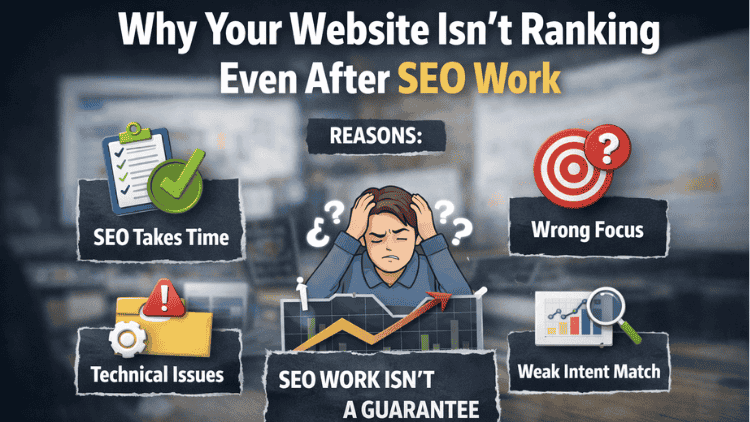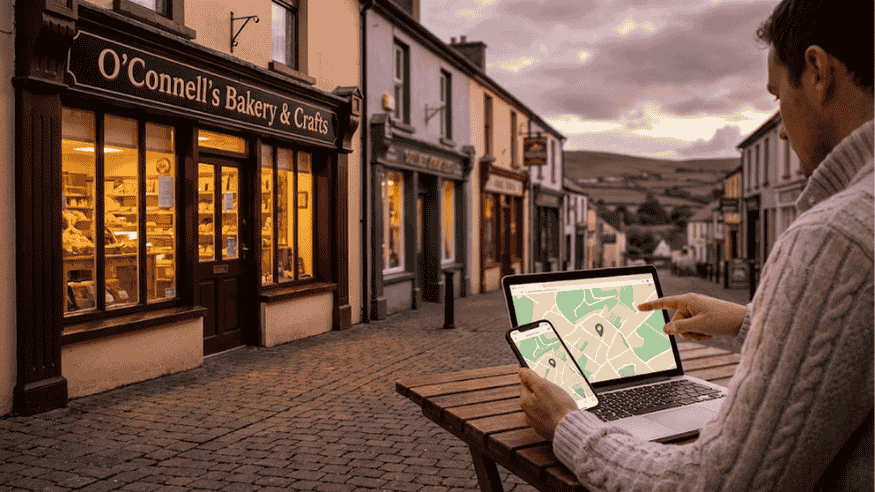
Why Small Businesses Need Digital Marketing to Compete in 2025

The business world is shifting faster than ever before. In 2025, small businesses are no longer competing only with local shops or familiar neighborhood brands — they’re facing global competition thanks to the internet. This is exactly why digital marketing is no longer optional; it’s essential. Whether you run a boutique café, a local coaching business, or an e-commerce startup, your online presence directly affects how customers discover, evaluate, and trust you.
In this blog, we’ll explore why small businesses need to prioritize digital marketing in 2025, how it empowers them to compete with larger players, and what strategies work best in today’s fast-changing digital landscape.
The Shift: Why 2025 Is Different for Small Businesses
Over the past decade, the way consumers search for, evaluate, and purchase products has drastically changed. A few key reasons stand out:
- More people are online than ever before. With affordable smartphones and cheap internet access, India alone has over 800 million active internet users. Globally, this number is expected to surpass 6 billion by 2025.
- Consumers trust digital interactions. People now discover new products through Instagram reels, YouTube videos, or Google search before ever walking into a store.
- Competition is borderless. A homegrown startup in Mumbai might compete with a brand in Singapore or California, thanks to platforms like Amazon, Flipkart, and Shopify.
This makes digital marketing the great equalizer — helping small businesses stay relevant and visible even with limited budgets.
What Makes Digital Marketing a Game-Changer
Unlike traditional advertising (billboards, radio, or flyers), internet marketing offers two major advantages for small businesses:
- Cost Efficiency
Running targeted ads on Google or Meta allows businesses to reach only the people who matter — unlike a newspaper ad that’s seen by everyone, including those who will never buy from you. - Data-Driven Insights
With tools like digital marketing analytics, businesses can measure what works and what doesn’t in real-time. This helps them make smarter decisions without wasting money. - Personalization at Scale
A café can send special offers to nearby customers, while an online boutique can retarget visitors who abandoned their cart — all automated with smart marketing tools.
Core Digital Marketing Strategies Small Businesses Need in 2025
1. Search Engine Optimization (SEO)
For small businesses, ranking higher on Google means getting discovered before competitors. Imagine someone searching “best bakery near me” — if your website is optimized, you’re the first option they click.
2. Social Media Engagement
Platforms like Instagram, Facebook, and LinkedIn have become the new storefronts. Customers often check your social pages before deciding whether to buy from you. Posting valuable content, engaging with comments, and running campaigns build strong brand loyalty.
3. Paid Internet Advertising
Paid campaigns through Google Ads or Meta Ads allow small businesses to target specific age groups, cities, or even customer interests. A well-planned ad campaign ensures that every rupee spent brings a measurable return.
4. Content Marketing
Publishing blogs, videos, or how-to guides builds authority in your niche. For example, a fitness coach writing about healthy routines attracts people searching for guidance — turning readers into paying clients.
5. Analytics & Tracking
Using digital marketing analytics, businesses can identify which campaigns bring results. For example, you’ll know whether Facebook Ads drive more sales than Google Ads, or whether your blog brings long-term organic traffic.
The Role of a Digital Marketing Consultant
While digital tools are available for everyone, the real challenge lies in strategy. This is where a digital marketing consultant makes a difference.
- They identify the right mix of SEO, ads, and social media for your business.
- They save you from wasting budget on ineffective campaigns.
- They set up tracking systems to measure success.
- They bring experience from other industries to guide your small business growth.
For businesses that can’t afford a full-time in-house team, hiring a consultant or even freelance digital marketing support is a smart choice.
Case Study: A Small Business Success
Consider a regional clothing store that shifted online during 2023. Instead of depending only on walk-in customers, they started running Instagram ads for their latest collections and invested in SEO to rank for “ethnic wear online.”
Within 6 months, their online sales grew 4x, and nearly 40% of their customers were now coming from outside their city. This transformation was possible only because they embraced internet advertising and a digital-first strategy.
Why Acting in 2025 Is Critical
The biggest risk small businesses face in 2025 is falling behind. Larger competitors are already investing heavily in digital. Without a strategy, small businesses risk losing both local and online audiences.
But here’s the good news: with the right digital approach, small businesses can outsmart larger brands by being faster, more personal, and more connected with their community.
Interlink Opportunity
If you’re exploring ways to grow your brand online, check out our digital marketing services for small business — designed to make small businesses thrive without overwhelming complexity. Our proven digital marketing services offer exactly what you need to compete in 2025.
Conclusion
2025 isn’t about whether small businesses should use digital marketing — it’s about how well they can implement it. The businesses that invest today in SEO, social media, ads, and analytics will not just survive but grow stronger against global competition.
Digital marketing is the modern growth engine — and for small businesses, it’s the most powerful tool to stay ahead, connect with customers, and win in an ever-changing marketplace.
Get a Free SEO Audit
Find issues, opportunities, and growth insights with a quick expert audit.











